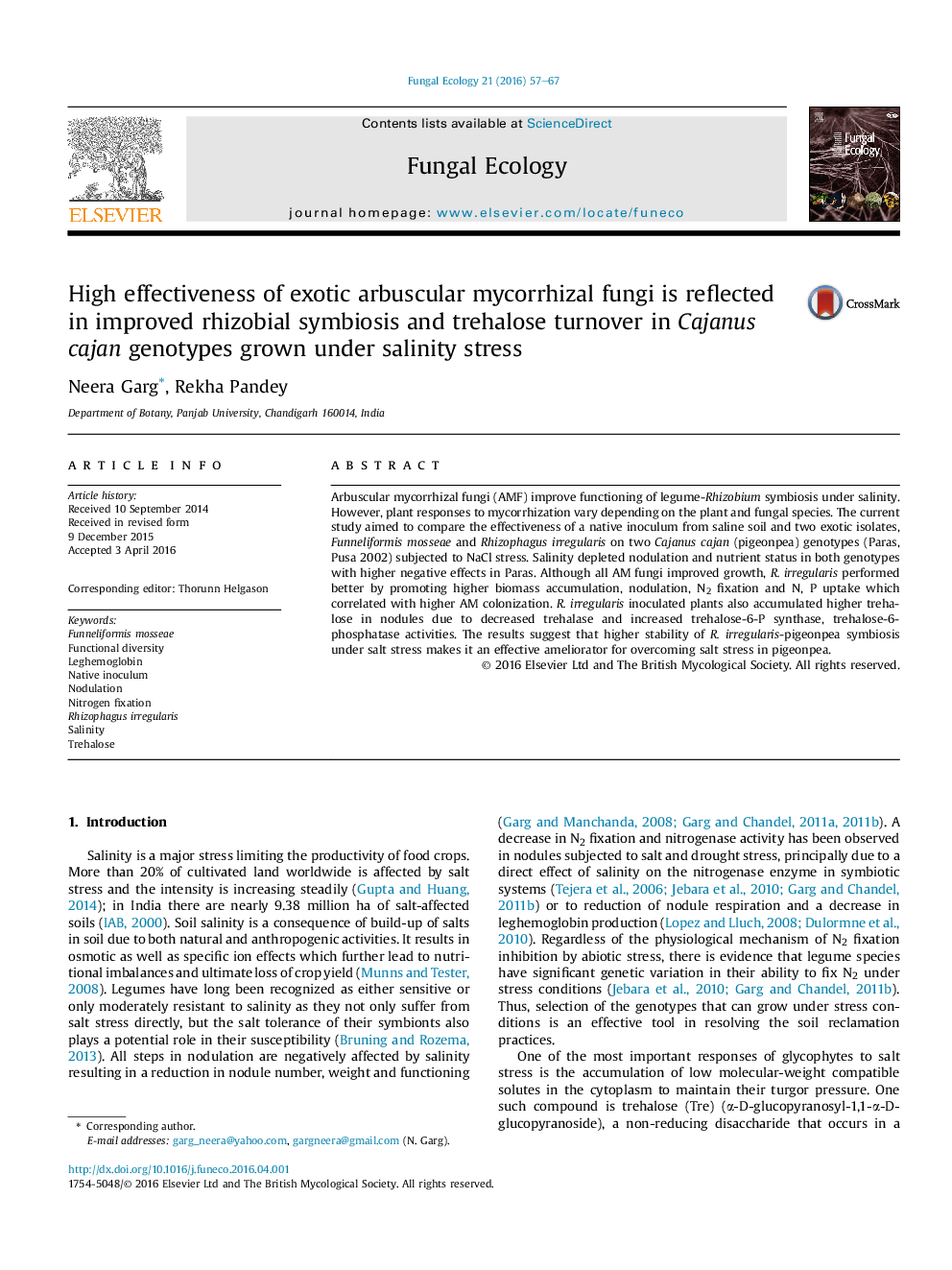| Article ID | Journal | Published Year | Pages | File Type |
|---|---|---|---|---|
| 8384426 | Fungal Ecology | 2016 | 11 Pages |
Abstract
Arbuscular mycorrhizal fungi (AMF) improve functioning of legume-Rhizobium symbiosis under salinity. However, plant responses to mycorrhization vary depending on the plant and fungal species. The current study aimed to compare the effectiveness of a native inoculum from saline soil and two exotic isolates, Funneliformis mosseae and Rhizophagus irregularis on two Cajanus cajan (pigeonpea) genotypes (Paras, Pusa 2002) subjected to NaCl stress. Salinity depleted nodulation and nutrient status in both genotypes with higher negative effects in Paras. Although all AM fungi improved growth, R. irregularis performed better by promoting higher biomass accumulation, nodulation, N2 fixation and N, P uptake which correlated with higher AM colonization. R. irregularis inoculated plants also accumulated higher trehalose in nodules due to decreased trehalase and increased trehalose-6-P synthase, trehalose-6-phosphatase activities. The results suggest that higher stability of R. irregularis-pigeonpea symbiosis under salt stress makes it an effective ameliorator for overcoming salt stress in pigeonpea.
Keywords
Related Topics
Life Sciences
Agricultural and Biological Sciences
Ecology, Evolution, Behavior and Systematics
Authors
Neera Garg, Rekha Pandey,
